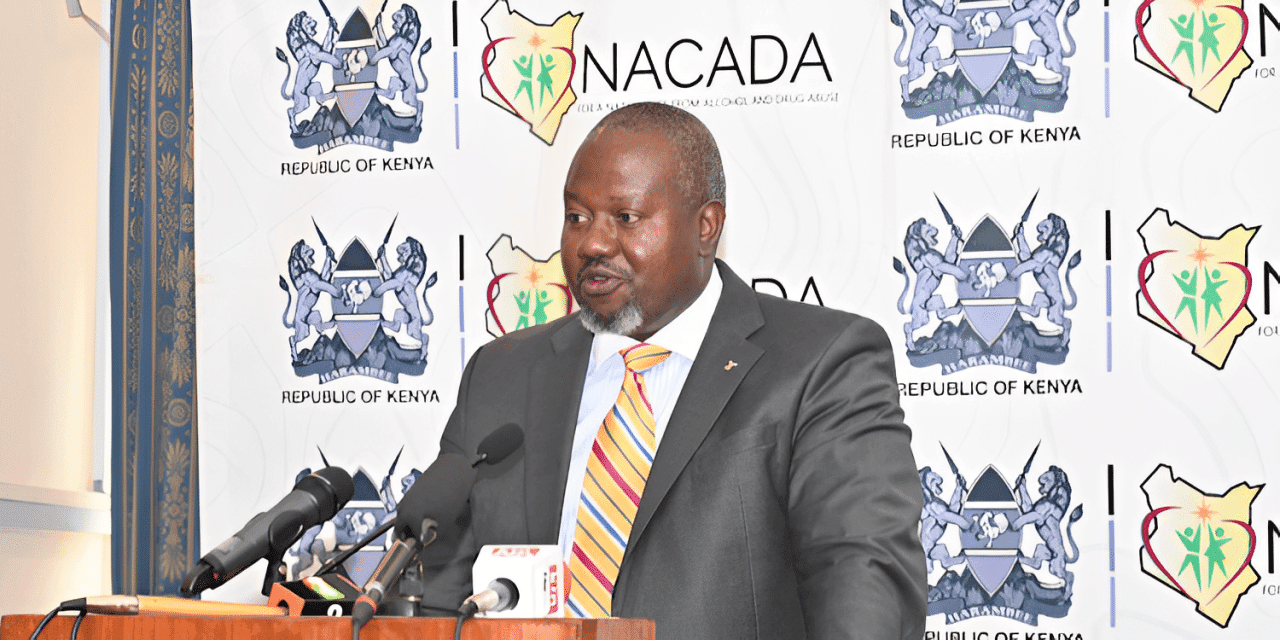We're loading the full news article for you. This includes the article content, images, author information, and related articles.
Nairobi, Kenya – The National Authority for Campaign Against Alcohol and Drug Abuse (NACADA) has insisted on barring famous national figures from advertising alcoholic products using online platforms.

Nairobi, Kenya — September 22, 2025, 16:30 EAT.
Kenya’s anti-drug abuse agency has issued a stern warning to social media influencers and celebrities against advertising alcoholic products online, citing rising youth addiction and the risk of normalising substance abuse among vulnerable groups.
The National Authority for Campaign Against Alcohol and Drug Abuse (NACADA) said on Monday that promoting alcoholic beverages on platforms like X, Instagram, TikTok, and Facebook violates both the Alcoholic Drinks Control Act, 2010 and the Public Health Act, which restricts marketing to minors.
“Influencers must recognise the responsibility they carry. Glamorising alcohol use online risks drawing an entire generation into addiction and associated health harms,” NACADA said in a statement posted on X at 13:00 EAT.
The agency noted that youth between 15 and 24 years are particularly at risk, with recent studies showing rising alcohol and substance use among high school and university students.
Alcohol abuse trends: A 2025 NACADA survey found that one in five Kenyan youths had consumed alcohol before age 18, with unregulated online marketing cited as a key driver.
Counterfeit products: The Kenya Bureau of Standards (KEBS) has raised concerns about counterfeit alcoholic drinks, many containing dangerous additives.
Public health costs: Alcohol abuse accounts for 13% of Kenya’s hospital admissions in mental health and liver disease wards, according to the Ministry of Health.
Alcoholic Drinks Control Act (2010): Bans alcohol marketing targeting minors and requires health warnings on all advertisements.
Communications Authority Guidelines: Mandate responsible digital advertising, with fines for violations.
Next steps: NACADA says it will work with Google, Meta, and TikTok to review influencer content promoting alcoholic beverages.
NACADA CEO, Anthony Omerikwa: “Social media must not become a marketplace for addiction. Influencers have the power to shape choices; we urge them to choose public health over profits.”
Health Advocates: Dr. Maria Ndirangu, a public health specialist, said: “Digital marketing bypasses traditional regulations, reaching minors directly. This warning is long overdue.”
Youth Voices: Some influencers defended paid partnerships, calling for clearer guidelines rather than outright bans.
Alcohol-related deaths (2024): 4,380 nationwide, up 12% from 2023.
Economic impact: KSh 62 billion lost annually to alcohol-related absenteeism and healthcare costs.
Digital reach: Over 11 million Kenyans aged 18–35 use social media daily.
Short-term: Possible backlash from influencer marketing agencies and alcohol brands.
Medium-term: Policy debate on balancing free speech, commerce, and public health.
Long-term: Potential legislation tightening digital advertising rules.
Whether NACADA plans to prosecute influencers violating the directive.
If alcohol companies will self-regulate or challenge the move in court.
How enforcement will work across international platforms.
2024-07: KEBS warns about rising counterfeit alcohol deaths.
2025-09-22 (13:00 EAT): NACADA issues influencer warning on X.
2025-10-15: Expected joint meeting between NACADA, CAK, and tech firms on digital advertising rules.
Parliamentary debates on stricter online marketing laws.
Tech industry response on content moderation policies.
Youth alcohol use statistics in NACADA’s 2026 national survey.
Editor’s Note: This story will be updated if NACADA announces enforcement actions or releases further guidelines for influencers and alcohol companies.
Keep the conversation in one place—threads here stay linked to the story and in the forums.
Sign in to start a discussion
Start a conversation about this story and keep it linked here.
Other hot threads
E-sports and Gaming Community in Kenya
Active 9 months ago
The Role of Technology in Modern Agriculture (AgriTech)
Active 9 months ago
Popular Recreational Activities Across Counties
Active 9 months ago
Investing in Youth Sports Development Programs
Active 9 months ago